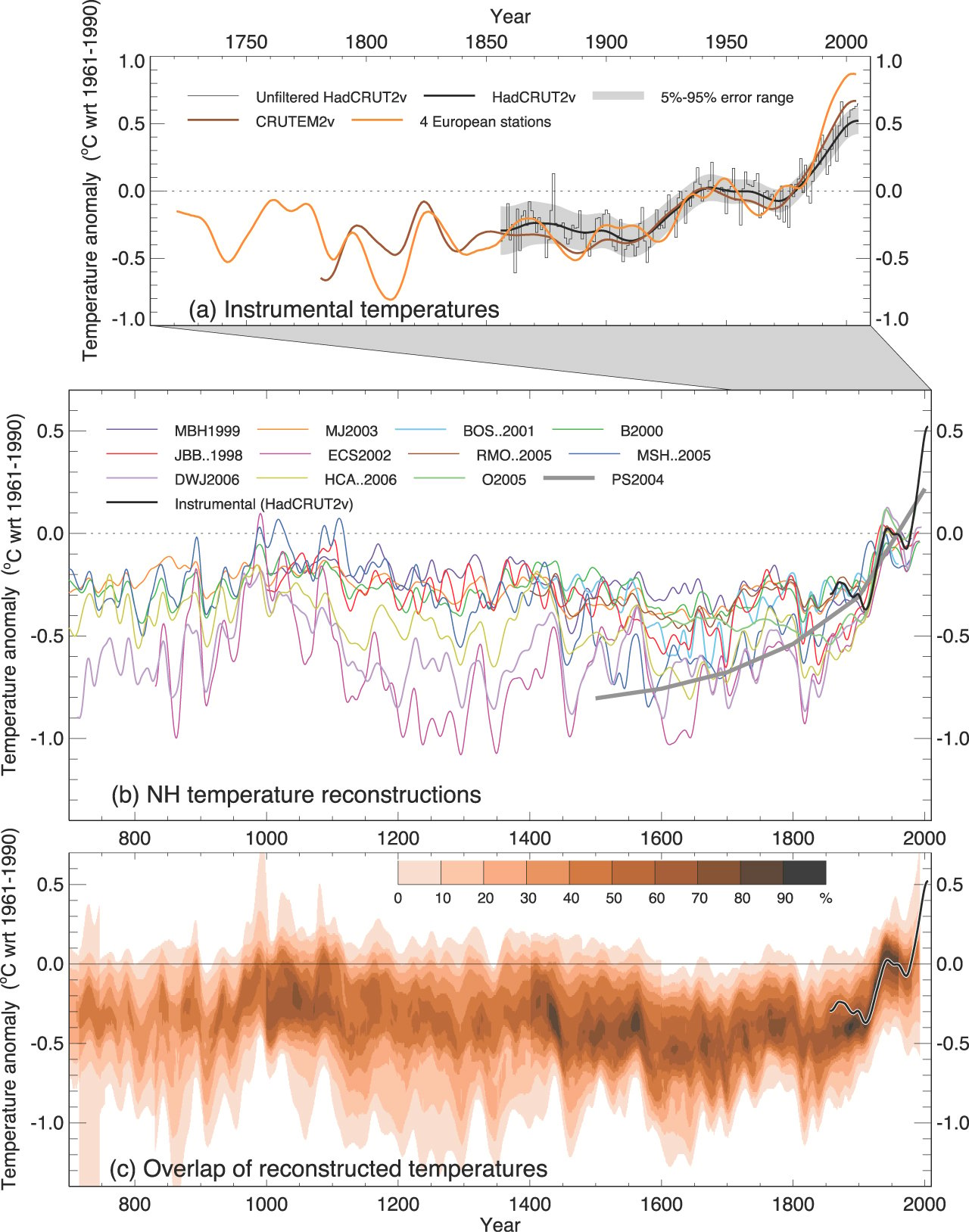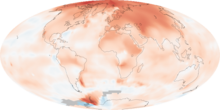A recent national poll found that:
44% of voters thinks human activity has a bigger impact on the long-term heating and cooling of the Earth’s atmosphere than solar activity does. Thirty-seven percent (37%) disagree and believe solar activity has a greater impact. Eighteen percent (18%) are not sure.The problem with that question is exactly the same problem as asking what momentum looks like - both indicate a basic failure to understand the issue. It's not as if climate variations are caused exclusively by people or the sun - in fact there are dozens of effects that can lead to large variations in the Earth’s climate including changes in solar luminosity, carbon sequestration by plants, solar activity, volcanic activity, and humanity burning carbon-based fuels. Changes to any of these processes will lead to changes in climate. The Sun’s luminosity changes on billion-year time-scales while human activity can have significant impacts over a few decades. Solar activity is on an 11-year cycle, but to change the climate one needs to look at averages over many cycles, so again we’re talking about roughly 100 year time-scales. All of these processes are always changing the climate, so the question of which process has the bigger impact depends on the time-scale you are interested in. It’s true that the Sun has been more active than normal over the past several cycles, but if you want to change the climate as fast as we’re observing, the Sun just isn’t up to the task.
Let’s look at how solar activity impacts climate. There are clear indications that long-term trends in solar activity can impact Earth's climate. The leading theory is that when solar activity is at a minimum the average magnetic field strength in the heliosphere is lower than when the Sun is more active. Stronger magnetic fields are more likely to have strong interactions with high-energy cosmic rays (mostly protons and electrons). When cosmic rays interact with the magnetic field they tend to produce synchrotron radition or undergo inverse Compton scattering. Both processes reduce their energy, so the number of high-energy cosmic ray hits on the upper atmosphere goes up when solar activity is low. When cosmic rays hit the atmosphere they tend to produce showers of thousands of particles with enough energy to ionize huge number of atoms. These free electrons and ions catalyze droplet formation, thereby enhancing cloud formation. More clouds mean that the Earth becomes more reflective (higher albedo for you astronomers in the audience) and therefore the Earth's mean temperature should go down. There are some pretty clear indications from ice core and tree ring studies that indicate that when the Sun goes through an extended minimum, the Earth tends to go into an ice age.
The key here is no scientist thinks that solar activity does not impact climate - there is hard evidence that it does - however the issue is that it does so much too slowly. If we look at the temperature record, we can see there are variations on a number of time-scales - but they key in discussing anthropogenic warming is that there is a huge spike in temperature on a very short time-scale that is unlike anything else in the data in the last century - which also corresponds to the time when human burning of fossil fuels and destruction of forested areas has peaked.
So at long last here's my point: asking if the Sun impacts our climate more or less than we do is completely missing the point. The question we should be asking is if we are responsible for the recent spike in the Earth's average temperature. Spoiler alert: the answer is at least in large part yes.























